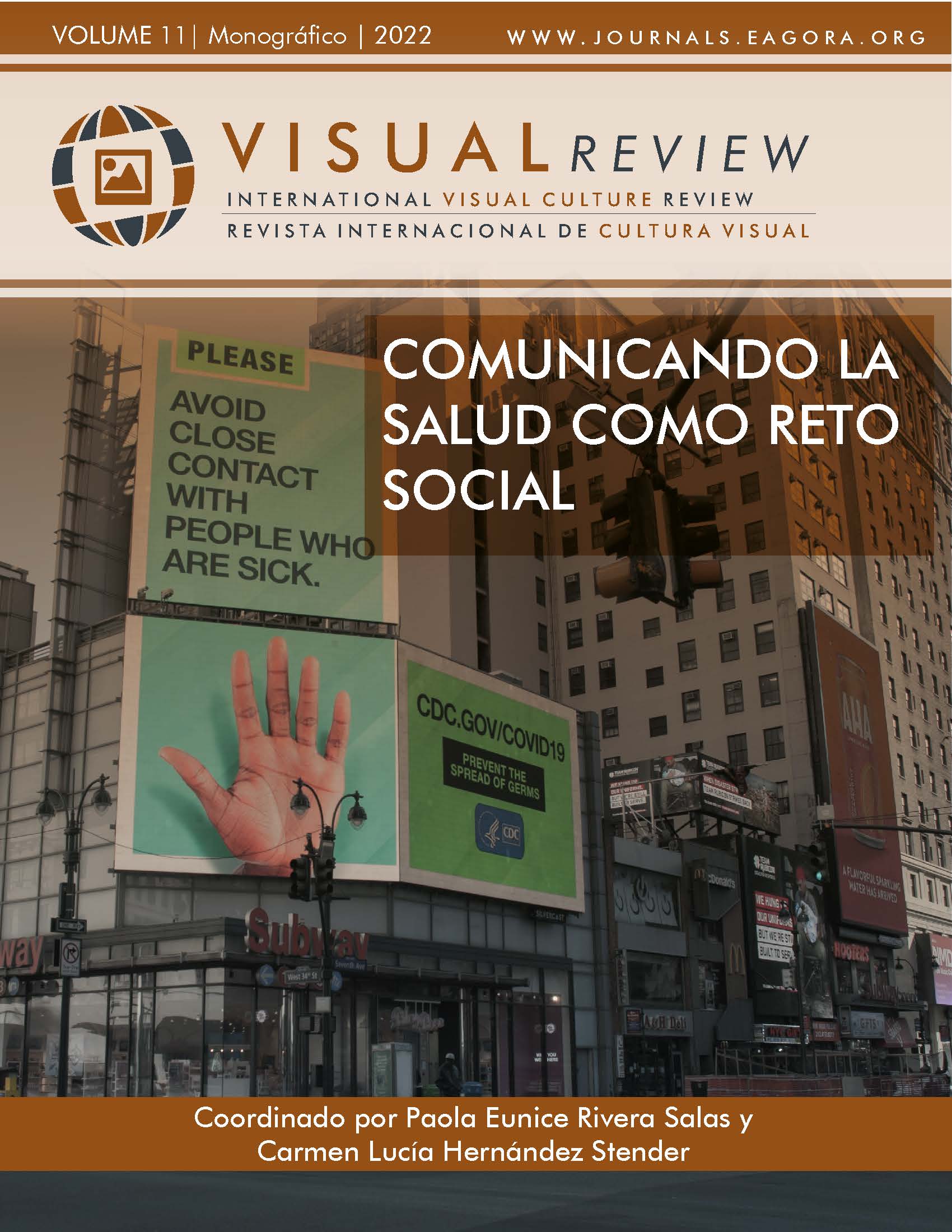Risk factors of suffering burnout by university lecturers: a qualitative research
DOI:
https://doi.org/10.37467/revvisual.v9.3635Keywords:
Burnout, Lecturers, University, Qualitative methodology, Professional life, Absence of time, WorkloadAbstract
A qualitative research was developed by using a phenomenological methodology on the main factors that may influence the appearance of burnout in university lecturers, according to their own point of view, is presented. A semi-structured interview was made to 25 university teachers asked on the factors that caused them some kind of unrest in their professional life. As a result, the work overload, the need to take part of their work home and the lack of time to disconnect, as well as the perception of students’ demotivation are the major factors that cause this discomfort and may provoke burnout.
Downloads
Global Statistics ℹ️
|
1253
Views
|
1276
Downloads
|
|
2529
Total
|
|
References
Acosta, A. C., Ruiz, L. K. J., Marin, M. R., & Guerrero, E. G. P. (2019). Estrés ocupacional y evaluación de desempeño en docentes universitarios del Departamento del Cesar. Encuentros, 17(1), 24-33. http://dx.doi.org/10.15665/encuent.v17i01.1595 DOI: https://doi.org/10.15665/encuent.v17i01.1595
Arquero, J.L, & Donoso, J.A.(2013). Docencia, investigación y burnout: el síndrome del quemado en profesores universitarios de Contabilidad: Research, teaching and burnout: A study in accounting university teaching staff. Revista de Contabilidad - Spanish Accounting Review, 16(2), 94–105. https://doi.org/10.1016/j.rcsar.2013.04.001 DOI: https://doi.org/10.1016/j.rcsar.2013.04.001
Avargues, M.L. & Borda, M. (2010). Estrés laboral y síndrome de burnout en la Universidad: análisis descriptivo de la situación actual y revisión de las principales líneas de investigación. Anuario de Psicología Clínica y de la Salud, 6, 73-78.
Berger, B.G. (2012). Psychological Benefits of an Active Lifestyle: What We Know and What We Need to Know. Quest, 48 (3),330-353. https://doi.org/10.1080/00336297.1996.10484201 DOI: https://doi.org/10.1080/00336297.1996.10484201
Cifre, E., & Llorens, S. (2012). Burnout en profesores de la UJI: un estudio diferencial. Comunicación presentada en las Fòrum de Recerca. 7. Facultat de Ciències Humanes i Socials. Universitat Jaume I http://www.uji.es/bin/publ/edicions/jfi7/burnout.pdf
Creswell, J. W. (2007). Qualitative inquiry and research design: Choosing among five approaches (2nd ed.). Sage Publications, Inc.
Denzin, N. K., & Lincoln, Y. S. (2005). Introduction: The Discipline and Practice of Qualitative Research. In N. K. Denzin & Y. S. Lincoln (Eds.), The Sage handbook of qualitative research (1–32). Sage Publications Ltd.
Fernández-Puig, V., Longás, J., Chamarro, A. & Virgili, C. (2015). Evaluando la salud laboral de los docentes de centros concertados: el Cuestionario de Salud Docente. Revista de Psicología del Trabajo y de las Organizaciones, 31(3), 175-185. https://dx.doi.org/10.1016/j.rpto.2015.07.001 DOI: https://doi.org/10.1016/j.rpto.2015.07.001
Friedman, I.A. (2000). Burnout in teachers: shattered dreams of impeccable professional performance. Psychotherapy in Practice, 56(5), 595-606. DOI: https://doi.org/10.1002/(SICI)1097-4679(200005)56:5<595::AID-JCLP2>3.0.CO;2-Q
Lackritz J.R. (2004). Exploring Burnout among University Faculty: Incidence, Performance, and Demographic Issues. Teaching and Teacher Education, 20, 713–729. DOI: https://doi.org/10.1016/j.tate.2004.07.002
Maslach, C. (2009). Comprendiendo el burnout. Ciencia & Trabajo, 11(32), 37-43.
Ortega, C., & López, F. (2004). El burnout o síndrome de estar quemado en los profesionales sanitarios: revisión y perspectivas. International Journal of Clinical and Health Psychology, 4(1), 137-160.
Palenzuela, P., Delgado, N., & Rodríguez, J.A. (2019) Exploring the Relationship between Contextual Performance and Burnout in Healthcare Professionals. Journal of Work and Organizational Psychology ,35(2), 115-121.https://doi.org/10.5093/jwop2019a13 DOI: https://doi.org/10.5093/jwop2019a13
Rodríguez-García, A.-M., Sola-Martínez, T., & Fernández-Cruz, M. (2017). Impacto del Burnout en el desarrollo profesional del profesorado universitario. Una revisión de la investigación. Revista Electrónica Interuniversitaria de Formación del Profesorado, 20(3), 161–178. https://doi.org/10.6018/reifop.20.3.27512 DOI: https://doi.org/10.6018/reifop.20.3.275121
Smith, J. A., Flower, P., & Larkin, M. (2009). Interpretative phenomenological analysis: theory, method and research. Sage.
Suárez, C., Moral Arroyo, G., & González Fernández, M.T. (2013). Consejos prácticos para escribir un artículo cualitativo publicable en Psicología. Psychosocial Intervention, 22(1), 71-79. https://dx.doi.org/10.5093/in2013a9 DOI: https://doi.org/10.5093/in2013a9
Suárez, M. J., & Martín Santana, J. D. (2019). Influencia del perfil sociodemográfico del profesor universitario sobre la inteligencia emocional y el burnout. Educación XXI, 22(2), 93-117. https://doi.org/10.5944/educxx1.22514 DOI: https://doi.org/10.5944/educxx1.22514
Sierra, M. (2008). La despersonalización: aspectos clínicos y neurobiológicos. Revista Colombiana de Psiquiatría, 37(1), 40-55.
Tümkaya, S. (2007). Burnout and humor relationship among university lecturers. Humor-international Journal of Humor Research, 20(1), 73-92. https://doi.org/10.1515/HUMOR.2007.004 DOI: https://doi.org/10.1515/HUMOR.2007.004
World Health Organization (2019). International stadistical classification of diseases and related health problems (11th ed). https://icd.who.int/
Zhao, X., & Ding, S. (2019). Phenomenology of Burnout Syndrome and Connection Thereof with Coping Strategies and Defense Mechanisms among University Professors. European Journal of Investigation in Health, Psychology and Education, 10, 82-93. https://doi.org/10.3390/ejihpe10010008 DOI: https://doi.org/10.3390/ejihpe10010008
Zimmermann, F., Rösler, L., Möller, J., & Köller, O. (2018). How learning conditions and program structure predict burnout and satisfaction in teacher education. European Journal of Teacher Education, 41(3), 318-342. https://doi.org/10.1080/02619768.2018.1448778 DOI: https://doi.org/10.1080/02619768.2018.1448778
Downloads
Published
How to Cite
Issue
Section
License
Those authors who publish in this journal accept the following terms:
-
Authors retain copyright.
-
Authors transfer to the journal the right of first publication. The journal also owns the publishing rights.
-
All published contents are governed by an Attribution-NoDerivatives 4.0 International License.
Access the informative version and legal text of the license. By virtue of this, third parties are allowed to use what is published as long as they mention the authorship of the work and the first publication in this journal. If you transform the material, you may not distribute the modified work. -
Authors may make other independent and additional contractual arrangements for non-exclusive distribution of the version of the article published in this journal (e.g., inclusion in an institutional repository or publication in a book) as long as they clearly indicate that the work was first published in this journal.
- Authors are allowed and recommended to publish their work on the Internet (for example on institutional and personal websites), following the publication of, and referencing the journal, as this could lead to constructive exchanges and a more extensive and quick circulation of published works (see The Effect of Open Access).














